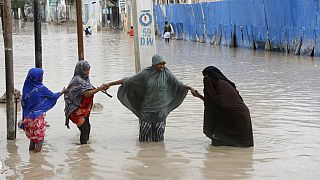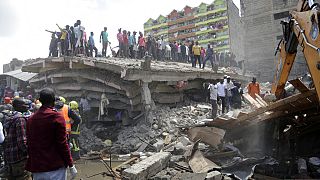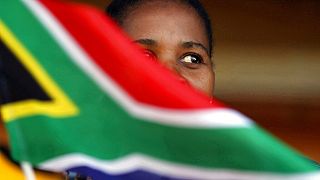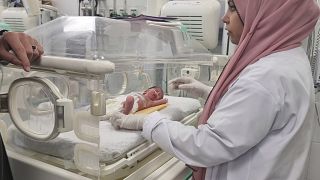Ethiopia
A devastating flood which hit the south Omo region of Ethiopia nearly three weeks ago has left many residents homeless and in need of assistance.
The flood in Akodogol village of Dasenech distrirct was caused by the sudden rise of the Omo River.
The residents had been hoping for some rain to ease their water scarcity, due to a severe shortage of rainfall, but were caught off guard by the unexpected deluge that swept away their houses and belongings.
Now, they are struggling to find shelter and basic necessities, and appealing for help from the authorities and humanitarian organizations.
Kubu Ocha came back home in Akodogol after three weeks with his wife and nine children, to plant sorghum.
Heavy rains in the highlands of south and southwest Ethiopia caused the river to overflow and flood 34 administrative wards and seven islands in the Dasenech Woreda region of South Omo since late October.
The flood has displaced 16,648 households, or 79,828 people, according to the International Rescue Committee (IRC).
One of the flooded areas is Delerele Kebele, where 150 families have built makeshift shelters after losing their homes.
Lolinga Ashote, a 30-year-old mother of six from Delerele Kebele, recalled the night when the flood swept away her home and village.
Her husband was away with their livestock, but her brothers were with her. She said they only managed to save her children and nothing else. ‘‘The flooding began at night around 1 a.m., accompanied by heavy rain. We were sleeping when the water level rose and engulfed our home. We had no choice but to abandon our belongings and escape with our children".
Hencok Ephrem, a senior emergency rapid response officer at the IRC, and his colleagues distributed non-food items to 150 households in need of support, funded by the European Union.
The items include solar lights, blankets, washing basins, kitchen sets, laundry and hygiene soap, and dignity kits for women.
The IRC staff have also been conducting hygiene promotion activities to prevent waterborne diseases.
Ephrem said the community had suffered due to drought because of failed rainy seasons, and now the flood had destroyed almost everything they had.












01:02
Pics of the day: April 25, 2024
01:09
Tanzania: Death toll from flooding rises to 155 as heavy rains continue in Eastern Africa
01:11
Kenya floods: Nairobi residents grapple with aftermath
01:30
More rain forecast for Kenya as flooding wreaks havoc
00:49
London Marathon: Women's-only world record, Kenyan double victory
01:40
UAE's recovery hindered by floods as Dubai flights delayed, CEO confirms